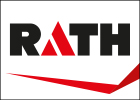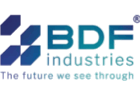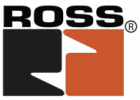Vetropack has pursued a holistic approach to sustainability ever since it launched a wide-ranging transformation process back in 2019. This European glass packaging manufacturer is working to continuously reduce the ecological footprint of all its business activities and improve recycling in the value chain, while safeguarding access to key resources. By committing to the SBTi, Vetropack is highlighting the key priority accorded to the targets it has set and is pledging to devote every effort to achieving its emission reduction targets.
“Climate change isn’t something that will happen at some time in the future: the climate has already changed, and it’s impacting the lives of millions of people and all other forms of life on earth. Addressing the climate crisis calls for bold and rapid collective action – and as Vetropack, we intend to play our part,” according to Johann Reiter, CEO of Vetropack Holding Ltd. “This is why I’m glad to announce that today – which is Decarbonization Day at COP27 – we are committing to set near-term company-wide emission reduction goals in line with climate science, as we join the Science Based Targets initiative (SBTi).”
Vetropack has also joined the Supplier Leadership on Climate Transition programme (Supplier LoCT), a supplier engagement initiative to help suppliers understand their carbon footprint, set science-based emission reduction targets, take action, and disclose progress through a series of courses and assignments. Nicolas Lootens, Group Sustainability Manager, explains: “Science-based targets are our top sustainability priority – and Supplier LoCT is helping us to achieve them.” The Vetropack Group has already completed the Scope 1 & 2 Footprinting Course, and the journey will continue with Scope 3.
About the Science Based Targets initiative
The Science Based Targets initiative (SBTi) is a global body enabling businesses to set ambitious emission reduction targets in line with the latest climate science. It is focused on accelerating companies across the world to halve emissions before 2030 and achieve net-zero emissions before 2050.
The initiative is a collaboration between CDP, the United Nations Global Compact, World Resources Institute (WRI) and the World Wide Fund for Nature (WWF), and is one of the We Mean Business Coalition commitments. The SBTi defines and promotes best practice in science-based target setting, offers resources and guidance to reduce barriers to adoption, and independently assesses and approves companies’ targets.



























